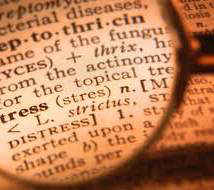
Cialis ist bekannt für seine lange Wirkdauer von bis zu 36 Stunden. Dadurch unterscheidet es sich deutlich von Viagra. Viele Schweizer vergleichen daher Preise und schauen nach Angeboten unter dem Begriff cialis generika schweiz, da Generika erschwinglicher sind.
Biocare.co.uk






Quality Innovation Education
Is modern life fracturing
Alessandro Ferretti
Stress - Modern day epidemic
Work-related stress, depression or anxiety accounted for 39% of all work-related illnesses in 2013/141.
The UK annual total of working days lost due to stress, depression or anxiety is 11.3 million1
The WHO estimate that up to 70-90% of doctor's visits are for stress related issues2
1.Stress-related and Psychological Disorders in Great Britain 2014 Health and Safety Executive Oct 2014 2.
Actor S Make Stress Work for You Feb 15, 2011 Harvard Business Review


"Everyone knows what stress is, but nobody really knows" Hans Seyle
Selye defined stress as "the non-specific response of the body to any demand for change".
It is important to differentiate between the unpleasant or harmful variety
of stress - distress, and positive stress or eustress.
With both forms of stress, the body undergoes virtually the same non-specific responses to the various positive or negative stimuli.
However, eustress causes much less damage than distress.
Stress and performance
Increased stress results in increased productivity…up to a point
After which things go rapidly downhill.
That point or peak differs for each of us.
Stress is difficult to define because it is so different for each of us.
Top causes of stress in the US
• Job Pressure
Co-worker tension, bosses, work overload
Loss of Job, Reduced Retirement, Medical Expenses
Health Crisis, Terminal or Chronic Illness
• Poor Nutrition
Divorce, Death of Spouse, Arguments with Friends, Loneliness
• Media Overload
Inadequate Nutrition, Caffeine, Processed Foods,
• Sleep Deprivation
Top Causes of Stress in the US American Psychological Association, 07.08.2014
Worrying yourself sick
Animals deal mostly with acute physical stressors.
"Psychological stress is a recent invention - we humans can experience wildly strong emotions linked to mere thoughts."1
Worrying can activate the stress response in anticipation of stressful events.
1. Sapolsky RM Why Zebras don't get ulcers 1998 US
Stress -fracturing our health
Stress and Immunity
Nearly 80 years ago Selye presented evidence for stress-induced immunosuppression via atrophy of the thymus gland.
We now know that chronic stress is associated with a greater risk of autoimmune diseases, upper respiratory infections, and poorer wound healing1,2,3.
1. Cohen S et al JAMA 2007,298:1685–1687 2. Cohen S et al Psychosom Med 1999 61:175–180. 3. Stone
AA, et al. Behav Med 1992 18:115–120.
Does stress help or hinder?
Short-term stress up regulates natural immunity - requiring minimal time and energy investment to act against invaders1.
− In evolutionary terms, these changes prepare the organism for
infections resulting from bites, puncture wounds, scrapes or other challenges to the integrity of the skin and blood.
− This process would be adaptive and did not divert excess energy
from fight-or-flight behaviour2.
Long-term stress suppresses or dysregulates both innate and adaptive immune responses:
− Disturbs cytokine balance, induces low-grade chronic inflammation,
and suppresses numbers and function of immuno-protective cells3.
− Chronic stress may increase susceptibility to some types of cancer by
suppressing Type 1 cytokines and protective T cells3.
1.Dopp JM et al Brain, Behaviour, and Immunity. 2000;14:10–26.2. Segerstrom S C & Miller GE Psychol Bull. 2004; 130(4):
601–630. 3. Dhanhar FS Immunol Res. 2014;58(2-3):193-210. 3.Canetti D et al J Trauma Stress 2014 27 (3):345-52
Stress and circulation
Chronic stress hammers away at the cardiovascular system, basically making it work harder and harder.
With the increase in blood pressure that accompanies repeated stress, damage occurs at branch points of the arteries.
Adrenaline triggers changes to enhance blood clotting.
These changes contribute to the development of atherosclerosis1.
1.Dekker M.J.H.J et al. J Clin Endocrinol Metab. 2008;93:3741–3747
When the adrenal glands are fatigued they continue to function, but hormones can:
− become depleted.
− lose balance with each other.
− lose circadian rhythm.
A growing body of scientific research indicates that stress can have profound effects on sleep.
Compared to those not experiencing insomnia, insomniacs have a greater number of stressful life events in the previous year1.
1. Hall M et al Symptoms of stress and depression as correlates of sleep in primary insomnia Psychosomatic
The circadian rhythm of cortisol is regulated by the sleep-wake cycle.
Secretions are characterised by a steep increase in the morning, followed by a gradual tailoring off until about midnight (circulating levels are at their lowest).
"A clear diurnal pattern of low cortisol excretion at night that increased some x7 in the morning was reproducibly identified in healthy control subjects"1
1. Burch W Endocr Pract. 2011;17(4):591-7.
Stress and Energy
The adrenal hormones are integrally involved in how energy is produced and where it is allocated.
When blood glucose levels drop, the adrenals release cortisol which triggers the liver to produce more glucose.
Cortisol increases the amount of glucose available to the brain and muscles and limits energy supplied to digestion, growth and reproduction (nonessential, or even detrimental in a survival situation).
Adrenal fatigue and blood sugar
1. Lam M Adrenal Fatigue Syndrome www.Drlam.com
Adrenals mobilise energy
When faced with a stressor:
− sympathetic nervous system turns
down insulin secretion to stop energy storage.
− secrete glucocorticoids to block
transport of nutrients.
− glucagon, adrenaline &
noradrenaline liquidate assets to turn stored nutrients into cash.
− making this ‘withdrawal' means
that there is now plenty of energy available for muscles to respond to the crisis.
1. Sapolsky R M Why zebras don't get ulcers 1998 W H Freeman and Co USA
So where's the problem?
….it's inefficient!
Withdrawing money early from savings and investments typically incurs a penalty.
In the same way, every time you store energy away from the circulation and then return it, you lose a proportion of the potential energy.
Activate the stress-response too often, and you will expend so much energy on making energy that you'll end up fatigued.
1. Sapolsky R M Why zebras don't get ulcers 1998 W H Freeman and Co USA
Stress and fertility
In men, psychological stress lowers serum testosterone levels and alters quality of sperm (reduced motility & morphology)1.
In women, higher levels of stress are associated with a longer time-to-pregnancy and an increased risk of infertility2
1. Bhongade MB et al Andrologia. 2014 Mar 26. 2. Lynch CD et al Hum Reprod. 2014;29(5):1067-75.
Stress and Cognition
Chronic stress clouds the ability to think clearly.
Investigators found that in response to repeated stress, there was a significant loss of glutamate receptors.1
Glutamate signalling plays a significant role in the functioning of the pre-frontal cortex.
This is a region of the brain that controls high level "executive" functions such as working memory and decision-making.
1.Yeun EY et al Neuron 2012; 73(5): 962–977.
Stress and Digestion
Stress alters gastroduodenal motility, slows gastric emptying, and unsettles intestinal transit and colonic motility1.
Stress has negative effects on the vagal nerve providing a pathway through which negative emotions may influence gut function and health2.
Vagal activation directly and profoundly influences metabolic responses to food and is a key factor in the regulation of glucose metabolism3.
1.Yin J et al Neurogastroenterol Motil. 2004;16:737–44. 2.Pieper S et al Psychosom Med. 2007;69:901–9
3.Teff KL. Journal of Parenteral and Enteral Nutrition. 2008;32:569–71.
Stress and the microflora
Stress, linked to imbalances in HPA, has been shown to alter the composition of gut flora.1
Researchers compared the response of the HPA axis to stress in germ free mice compared with those with a normal flora.
Stress caused an exaggerated ACTH & corticosteroid reaction in germ free mice.2
This hyper reaction was reversed by administration of Bifidobacterium infantis.3
1. O'Mahony et al Biol Psychiatry 2008;65:263-267 2. Sudo et al J Physiol 2004;558:263-275 3. O'Mahony et
al Gastroenterology 2005;128:541-551
Fracturing our health
Continual over-activation of the stress response without compensatory relaxation and recovery can turn a survival mechanism into one that has potential to cause harm.
Stress has been linked to the 6 major causes of death1
1. Actor S Make Stress Work for You Feb 15, 2011 Harvard Business Review
Can we change our response to stressors?
Is stress inevitable?
"Between stimulus and response
……there is a space.
In that space is our power to choose our response"
Identifying a problem
You feel tired for no reason.
You have trouble getting up in the morning, even when you go to bed at a reasonable hour.
You are feeling rundown or overwhelmed.
You have difficulty bouncing back from stress or illness.
You crave salty and sweet snacks.
You feel more awake, alert and energetic after 6PM than you do all day.
1. Wilson JL Adrenal Fatigue - the 21st century stress syndrome 2001 Smart publications Petaluma CA
Limitations of Adrenal Stress Index
ASI gives a snap shot of hormonal response to stress.
Glucocorticoid resistance can develop in a similar way to insulin or leptin resistance.
Cellular receptivity to cortisol is probably more significant than circulating levels of cortisol1.
Heart Rate Variability and glucose monitoring can be more useful tools to monitor stress response if used on an on-going basis.
1. Cohen S et al PNAS 2012, 109(16)
Dietary essentials
Both laboratory and epidemiological studies suggest that stressful events motivate less healthy food choices1
Aim to keep blood sugar levels steady - preferably monitor regularly.
− Fruit eaten in moderation and not in isolation.
− Swap processed & refined foods, (especially those containing sugar and
artificial sweeteners) for natural wholefoods .
− Caffeine elevates cortisol & adrenaline levels both at rest and in periods
of stress2 - replace with non caffeine containing herbal teas (esp. liquorice and green) and water.
− Include at least 6-8 portions of vegetables daily - paying particular focus
to dark green leafy and non-starchy vegetables.
Include multiple sources of essential fats such as oily fish, flaxseeds, walnuts, almonds, hemp and chia seeds.
1.Adam TC, Epel ES. Physiology & Behaviour. 2007;91:449–58 2. Lovallo WR Psychosom Med. 2005 ; 67(5): 734–739. 2.
Re-establish a healthy circadian rhythm - asleep by 11pm at latest.
Exercising inappropriately can be an additional stressor - the physical stress of training when exhausted, or overtraining, may cause adrenal hormones to become depleted1.
Use HRV to plan training sessions.
Adjust training schedule accordingly - walks in nature, pilates and tai chi etc
Monitor heart rate variability to learn how emotions effect stress levels.
Deep breathing techniques can be useful to help manage stressful situations2.
A study at Harvard Business School asked employees to take one full day off during the week, and also unplug completely from work at night (no emails etc). The study showed that employees were more satisfied with their jobs, AND more productive.3
1.Brooks KA & Carter JG J Nov Physiother 2013;3(125):11717 2. www.heartmath.com 3 Perlow LA and Porter JL Making Time
Off Predictable—and Required Harvard Business Review Oct 2009
Supporting your genes
Genetic testing can help to identify individuals who may be more susceptible to the damaging effects of chronic stress:
− Susceptibility to increased HPA and glucocorticoid response− Compromised methylation − Increased glutamic acid/GABA ratio− Increased blood glucose level in response to stress− Poor degradation of neurotransmitters.
− For these individuals, the learning of appropriate life load, self care
and nutrition skills is essential.
Nutrients for Glucocorticoids
L-Citrulline has been shown to have therapeutic effects on nitric-oxide levels.
Licorice - triterpines in licorice metabolise into molecules with similar structure to adrenal cortex hormones1 potentiating cortisol by reducing its breakdown2. Stress response was partially blocked and adaptation enhanced in rats given glycyrrhizic acid for 10 days.3
Vitamin C - a key antioxidant that is needed in larger quantities during times of stress. Studies have demonstrated how psychological stress induces oxidative damage.4
Panax Ginseng - an adaptogenic herb with anti-fatigue properties5. It has been shown to improve energy, stamina & mental performance6
Chromium mobilises the glucose transporter to the inner cell surface membrane.7 It improves insulin binding, insulin receptor number, insulin internalisation, beta cell sensitivity and insulin receptor enzymes with overall increases in insulin sensitivity8
Vitamin B39 and magnesium10 support blood sugar regulation.
Vitamin B5 is involved manufacture of cortisol and the neurotransmitter acetylcholine11
1. Al-Dujaili EA et al Mol Cell Endocrinol. 2011 10;336(1-2):102-9. 2. Whorwood . 1993 Jun;132(6):2287-92. 3. O Ainsah et al Clinical and Experimental Pharmacology
and Physiology 1999;26 (5-6):444-448 4. Jakovljevic VLj et al Gen Physiol Biophys. 2011;30(3):293-300. 5. Zhao W et al 2009;38(2):184-7 6. Mucalo et al Coll Antropol
2012 336(4):1435-40 7. Chen G et al, 2006 Mol Endocrinol 20: 857-870. 8. Anderson RA J Am Coll Nutr. 1997 Oct;16(5):404-10 9. Chen G et al Molecular Endocrinology
2006;20(4):857–870 10. Stebbing JB et al. Magnesium Bull 1982;2:131–4. 11.Int J Vitam Nutr Res 1983;24: 4
Nutrients for life-load
Lecithin - contains phosphatidyl serine, which has been shown to have a selective stress dampening effect on the pituitary-adrenal axis, suggesting its potential in the treatment of stress related disorders1.
Lemon balm - supplementation with lemon balm extract has been shown to promote a significant increase of calm in the individual along with a reduction in the state of anxiety and insomnia2.
L-Tryptophan - is an essential amino acid acting as a building block for protein biosynthesis. It is a precursor for serotonin, melatonin and also niacin3.
L-Theanine - is a physiologically and behaviourally active compound. It increases serotonin and dopamine production in the brain, and elicits selective changes in alpha brain wave activity4.
Magnesium taurate - magnesium supplementation reduces HPA overactivity and improves sleep patterns5.
1. Hellhammer J et al Stress 2004;7(2):119-26 2 Cases J et al Med J Nutrition Metab 2011;4(3):211-218 3 Schaechter JD, Wurtman RJ
Brain Res. 1990, 532 (1–2): 203–10 4. Altern Med Rev. 2005 Jun;10(2):136-8. 5. Held K et al Pharmacopsychiatry 2002;35(4):135-43
Supplements for stress support
‘Intensive' Product
Avoid sugar, caffeine,
Well: normal stress, energy
Increase green vegetables
Avoid sugar, caffeine,
Acute stress response
Increase green vegetables
Increase protein:carb ratio
AD Intensive - 1 am
Adrenal exhaustion
AD Intensive - 1 pm
Increase protein:carb ratio
Support blood sugar levels Life load
"The greatest weapon against stress is our ability to choose one thought over another"
Dr William James (1842-1910)
Source: http://www.biocare.co.uk/content/BC/docs/webinar/TheStressFactorHandout.pdf
Caratteristiche / Model i 110 - 111 - 120 – 121 < 33 cm diametro < 33 cm diametro < 33 cm diametro < 33 cm diametro Circa 6 kg di gas Circa 13 kg di gas Circa 6 kg di gas Circa 13 kg di gas e 13 kg in totale e 27 kg in totale e 13 kg in totale e 27 kg in totale Per 20 ore di uso Per 42 ore di uso Per 20 ore di uso Per 42 ore di uso GB - Gran Bretagna
www.buchi.com Information Bulletin Number 59/2010 Laboratory Scale Spray Drying Of Inhalable Drugs: A Review Mini Spray Dryer B�290 Figure 1: Mini Spray Dryer B-290 The Mini Spray Dryer B-290 from Büchi a compact spray dryer. The residence The adjustable process parameters Labortechnik AG is a laboratory scale time of the drying air within the spray












